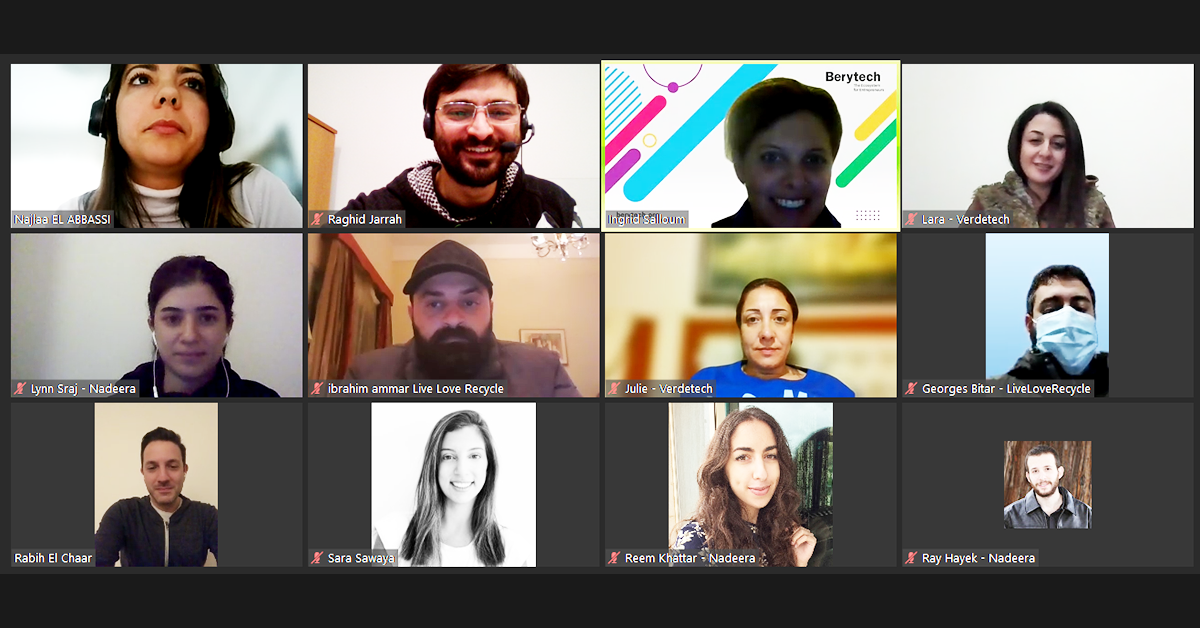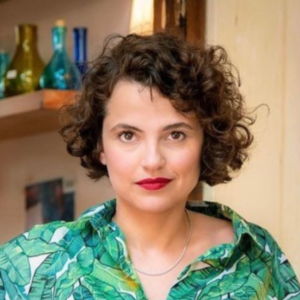
The MikaCycle journey began in 2020. The team was initially focused on sourcing recycled plastic by providing trading services for manufacturers and brands. However, they discovered pain points and challenges in the procurement process, the quality limits of the traded recycled plastic, and the lack of transparency in the journey of plastic scrap from its collection until it became raw material.
This led them to create a global marketplace for premium recycled plastic. Their aim is to make the trading experience easier for suppliers and buyers by digitalizing the end-to-end process of the transaction with quality, trust, and transparency at the forefront of their priorities.
In this blog, the MikaCycle team show us the valuable lessons they learned throughout their journey, that they shared in a unique info session with the participating teams in the DAWERR Clearinghouse.
Launching MikaCycle
The way we see it, as bad as plastic can be, it’s here to stay and it does have applications that are meaningful and necessary. We also believe that resources can be better allocated and recycling can have a positive impact.
The challenges of sourcing recycled plastics reliably and cost-efficiently have significantly slowed down the necessary adoption of recycled materials as a viable alternative to virgin plastics. We want to empower the recycling industry and help this market thrive in order to scale the recycling of plastic in a standardized and secure way.
We started working with 20 clients and eventually also partnered with experts on recycling, waste management, and circular economy objectives as advisors and consultants. Our upgraded marketplace was developed following intense research with over 200 recyclers and brands around the world to identify and understand the pain points in the recycled plastic market.
Today, with 200 clients, we’re still working to grow and improve. We want to share the MikaCycle journey, and the lessons learned to help others start their own journeys.
Lesson 1: Know your B2B customers
Before beginning to build a B2B marketplace, you need to approach and establish personal communication with the companies dealing with the products you want to include in your marketplace. Businesses are already networking in the real world so connecting them through a website is not enough for your product to find a market.
Initiate this connection yourself in real life and observe how these parties interact to understand what issues and challenges exist in the transaction for recyclable materials. A good approach can be to find buyers through different channels and get in touch with them directly to help them on the journey to source recyclables.
Lesson 2: When working with recyclables, it’s better to focus on one niche market
The next lesson comes from our growth stage. While our stronghold was development work, we also took on all kinds of contracts from testing and digital marketing to ad campaigns and lead generation.
At the time, we thought it was a great way to get a foot in the door with contracts, with the idea that one kind of work would lead to another opportunity for work. But that didn’t happen because every contract also required us as the guarantors to dive deep into that area, investing time and effort. Wherever we failed, the contract failed.
Don’t spread yourself too thin. For at least the first few cycles, limit the marketplace to the items you can really optimize and swear by.
Lesson 3: Figure out what your marketplace can offer companies in this niche market
Make sure your value offering is clear and enticing enough to have customers and vendors stick to the platform. Again, when you focus on a niche market, you need to have carried out a deep market study to understand what is missing and what companies in this market are looking for to not only meet their needs but also their clients’ needs.
Lesson 4: Connecting buyers and sellers of recyclables is not enough for you to become profitable
You have to have a strong marketplace business model that fits your niche market and be able to scale in a reasonable period of time. The transactional business model remains the most scalable. But you need to have a strong reason to take commissions from your clients in order to convince them to complete the transaction through your platform and not deal outside, especially knowing the level of innovation in the payments world.
Lesson 5: Learn from previous experiences to better design the services that you will provide in your marketplace
We reached out directly to companies and asked about their experiences and what struggles they faced, what worked for them, and how we could best support them in the process. We found the main obstacles to be a lack of transparency and quality assurance, as well as trading limitations.
It was hard for buyers to guarantee they weren’t getting materials falsely advertised as recycled or ones that did not meet their quality requirements. We realized that the best way to help was by doing our part to vet the legitimacy of companies and their certifications as well as facilitate the communication between buyers and sellers. That is why we made sure we could provide services like a secure payment method and allow buyers and sellers to negotiate directly through our platform no matter where they were in order to provide a sense of trust and transparency throughout the acquisition process.
You can’t build a marketplace for recyclables without having a deep knowledge of the recyclables market
Building a marketplace for a niche market like plastic scrap and recycled plastic has required a lot of effort, not only from a technical perspective but also in identifying the added value that we could bring to this niche market. In our case, bringing companies from the plastic recycling industry together from all over the world to use this new platform, changing their way of operating from business-as-usual trading to a fully digitalized operation with services designed to help them solve the trading issues closely linked to the pain points in the broader plastic recycling industry.
About DAWERR
The Diverting Waste by Encouraging Reuse and Recycling Activity (DAWERR) is a five-year activity funded by the United States Agency for International Development (USAID) that aims to improve the social, environmental, and economic well-being of Lebanese citizens by establishing sustainable solid waste recovery and diversion programs in collaboration with municipalities throughout rural areas in Lebanon. Learn more about DAWERR Activity: https://berytech.org/programs/dawerr/










